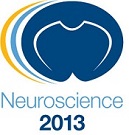Tenth International Congress of Neuroethology
At the University of Maryland, College Park, MD USA • August 5-10, 2012
Lots of cephalopod studies at this ISN meeting, which overall looks to be amazing. Here are some ceph-related abstracts:
1) The neurophysiological basis of motor function in the octopus - an animal with an unusual ‘embodiment’
Binyamin Hochner1*
2) Meeting an alien, behavioral experiments on the octopus
Michael Kuba1*, Tamar Gutnick1 and Binyamin Hochner1, 2
3) Does nociceptive sensitization confer fitness benefits on injured squid, Loligo pealeii?
Robyn J. Crook1, 2*, Roger T. Hanlon3 and Edgar T. Walters1
4) Evidence for a rhodopsin-retinochrome photosensitive system in chromatophores of the squid, Loligo pealeii
Alexandra Kingston1*, George Bell2, Alan M. Kuzirian2, Roger T. Hanlon2 and Thomas W. Cronin1
5) Neural control of dynamic structural coloration in squid iridophores.
Trevor J. Wardill1*, Paloma T. Gonzalez Bellido1*, Robyn Crook2 and Roger T. Hanlon1
6) POLARISATION VISION, AN UNEXPLORED CHANNEL FOR COMMUNICATION?
Justin Marshall1*, Martin How1, Tsyr-Huei Chiou1, Nicholas Roberts2, Shelby Temple1, 2 and Thomas Cronin3
7) High-resolution polarization vision in cephalopods
Shelby E. Temple1, 2*, Vincenzo Pignatelli3, Tayce Cook2, Martin J. How3, Tsyr-Huei Chiou3, Nicholas W. Roberts1 and Justin Marshall3
8) Dynamics of chromatophore response to visual stimulation
Stavros P. Hadjisolomou1* and Frank W. Grasso1
9) Visual cognition in cuttlefish Sepia pharaonis: discrimination, generalization, and amodal completion
Chuan-Chin Chiao1, 2* and I-Rong Lin2
Will update this when the final program is released.
S.
At the University of Maryland, College Park, MD USA • August 5-10, 2012
Lots of cephalopod studies at this ISN meeting, which overall looks to be amazing. Here are some ceph-related abstracts:
1) The neurophysiological basis of motor function in the octopus - an animal with an unusual ‘embodiment’
Binyamin Hochner1*
2) Meeting an alien, behavioral experiments on the octopus
Michael Kuba1*, Tamar Gutnick1 and Binyamin Hochner1, 2
3) Does nociceptive sensitization confer fitness benefits on injured squid, Loligo pealeii?
Robyn J. Crook1, 2*, Roger T. Hanlon3 and Edgar T. Walters1
4) Evidence for a rhodopsin-retinochrome photosensitive system in chromatophores of the squid, Loligo pealeii
Alexandra Kingston1*, George Bell2, Alan M. Kuzirian2, Roger T. Hanlon2 and Thomas W. Cronin1
5) Neural control of dynamic structural coloration in squid iridophores.
Trevor J. Wardill1*, Paloma T. Gonzalez Bellido1*, Robyn Crook2 and Roger T. Hanlon1
6) POLARISATION VISION, AN UNEXPLORED CHANNEL FOR COMMUNICATION?
Justin Marshall1*, Martin How1, Tsyr-Huei Chiou1, Nicholas Roberts2, Shelby Temple1, 2 and Thomas Cronin3
7) High-resolution polarization vision in cephalopods
Shelby E. Temple1, 2*, Vincenzo Pignatelli3, Tayce Cook2, Martin J. How3, Tsyr-Huei Chiou3, Nicholas W. Roberts1 and Justin Marshall3
8) Dynamics of chromatophore response to visual stimulation
Stavros P. Hadjisolomou1* and Frank W. Grasso1
9) Visual cognition in cuttlefish Sepia pharaonis: discrimination, generalization, and amodal completion
Chuan-Chin Chiao1, 2* and I-Rong Lin2
Will update this when the final program is released.
S.


